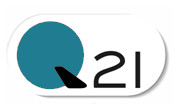The second partner meeting took place in Paris in November 2012. In the t wo-day meeting the preceding stocktaking phase was summarised and the data of the online survey analysed.
wo-day meeting the preceding stocktaking phase was summarised and the data of the online survey analysed.
The stocktaking phase of the VITA project investigated the demands of different learners’ targets groups and educational sectors with regard to validation of service-related learning outcomes. At the beginning a desk research was carried out to outline the meaning of “service oriented competences”. The partnership agreed to refer to the EUROPASS categories of social, personal and organisational competences (SPOC) that would comprise the competences necessary to cope with the challenges of the “service economy”.
The VITA partnership developed a comprehensive online questionnaire that was filled by 165 experts from different educational sectors of the LLP from 20 European countries. Parallel 20 interviews were carried out with experts who are in charge of learning projects or activities dealing with service-oriented competences in the different sectors.
Generally all respondents of the questionnaire consider SPOC as highly relevant for their learners, both for their career development and for life in general. Asked which competences are considered most important for good performance in the service economy, communication is ranked first. Furthermore, flexibility, self-confidence and self-reflection, problem solving, team competence and learning to learn are highly appreciated.
Results of the questionnaire indicate that evaluating social and personal competences is considered being increasingly important in many contexts. Almost all respondents consider it important to offer evidence of SPOC development to their learners; however, only 40% of the respondents stated that they had evaluated competence development in structured ways before.
Main purposes of evidencing SPOC development are seen in being able to improve ones own work (73,3%) and to validate the competence development in order to support the learners career development (69,5%). Promoting self-awareness and self-reflection of the participants is also considered a relevant benefit by more than half of the respondents.
Generally there are different views on social, personal and organisational competences. along two main lines of argumentation. One mainly focuses on aspects of employability, the other rather stressing the importance of SPOC for the development of personality and well being.
Working fields that closely relate to the world of labour rather focus on the importance of social, personal and organisational competences for the employability of learners (HE, VET). In adult education the benefit of SPOC for personality development is in the foreground. In the school sector they are also considered as supporting successful learning and as vehicle for peaceful cooperation in the classrooms.
However, in most sectors and countries SPOC are mainly conveyed informally or in non-formal ways, e.g. through extracurricular school projects, practical exercises in VET or in work- and study-placements.
The VITA partners also discussed the pilots, in which the VITA validation system based on LEVEL5 will be tested. Ten learning projects have been identified, in which service-related learning outcomes will be evaluated and evidenced by means of the LEVEL5 validation system.
